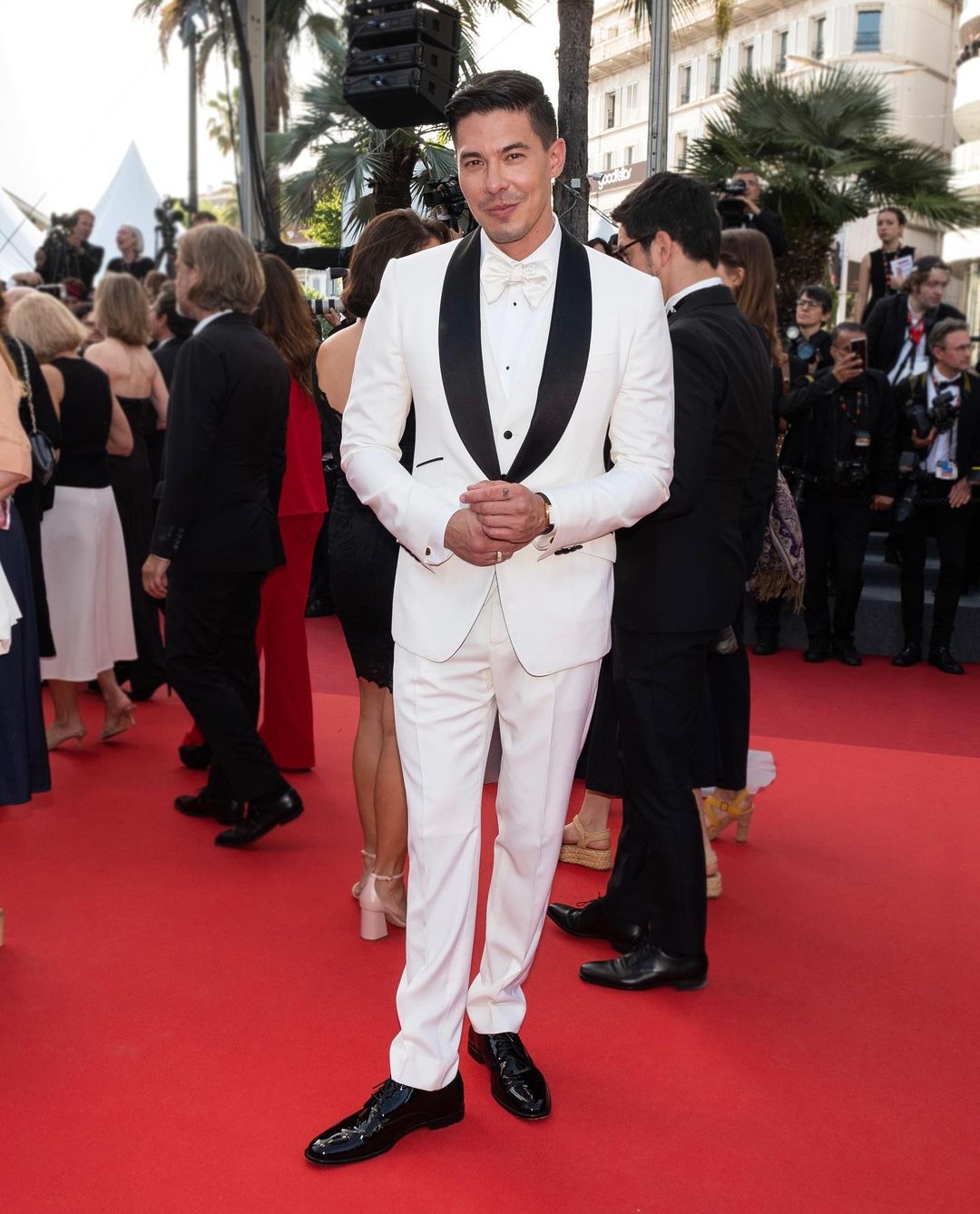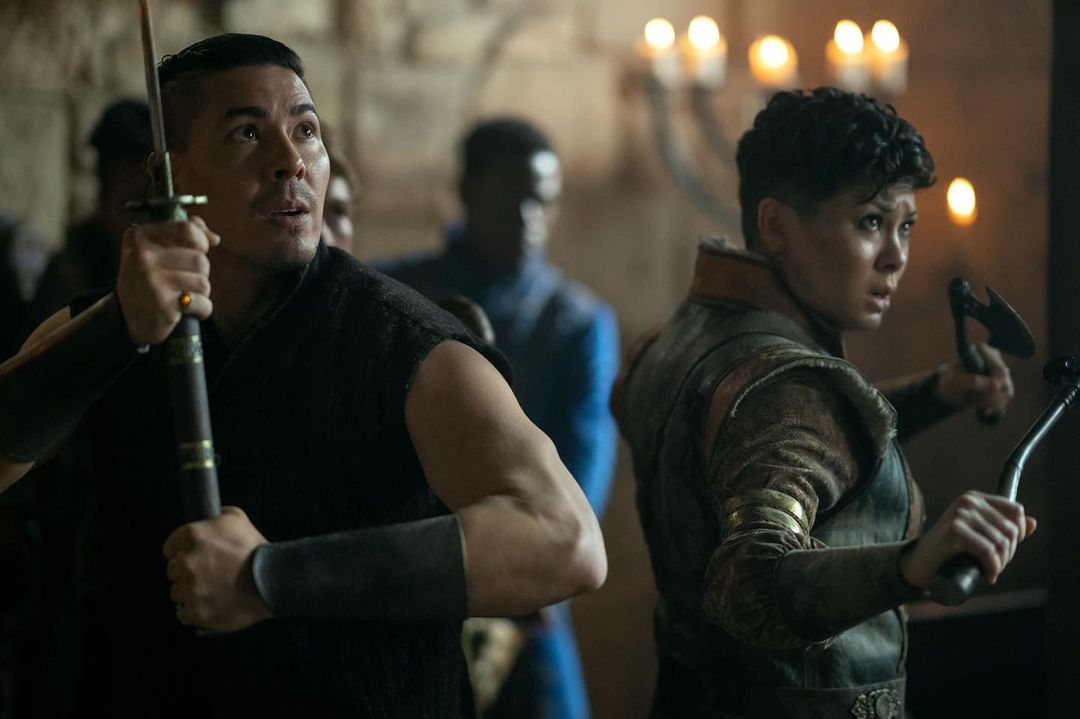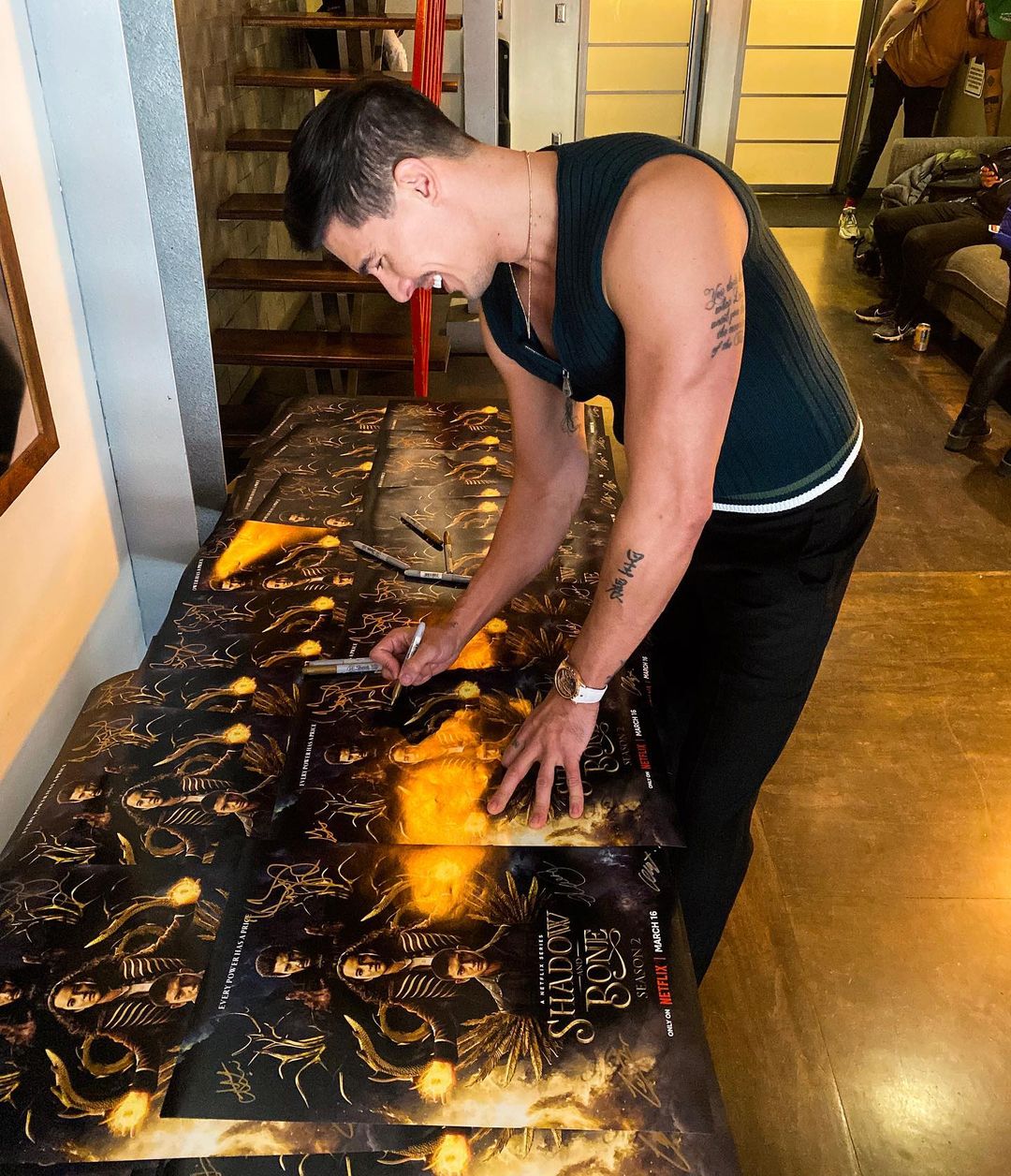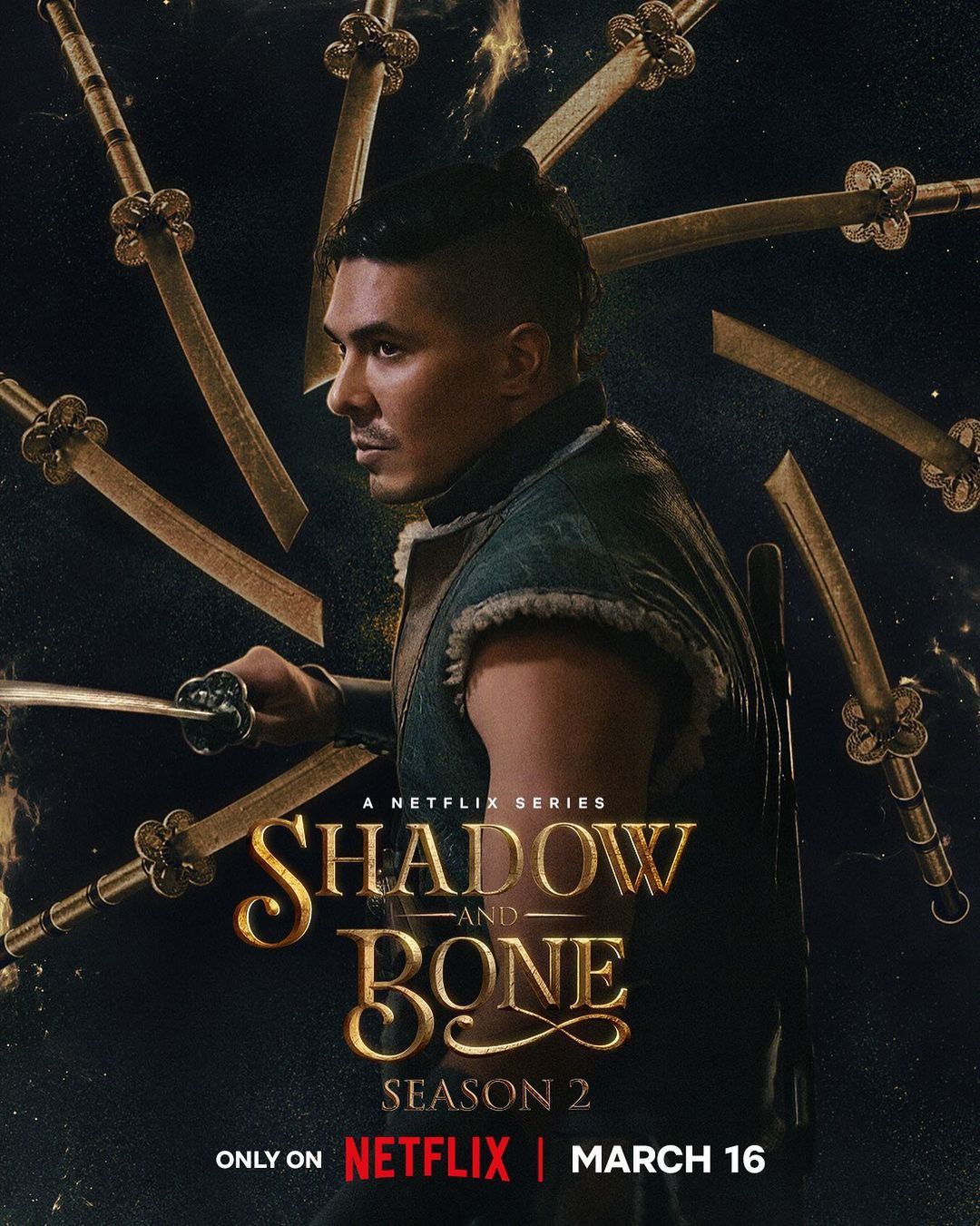Lewis Tan shares his preparations for his action roles, his time working on Mortal Kombat, being Asian in Hollywood, representation, and more.
Related: Unstable Star Rachel Marsh On Reconnecting With Her Filipino Side
Film and television actor Lewis Tan is known for his starring roles in Wu Assassins and the Mortal Kombat reboot. In Deadpool 2, he had a small but memorable role as the mutant Shatterstar. And most recently, he played Tolya Yul-Bataar in the second season of Netflix’s Shadow and Bone. His take on action roles is also fitting considering he had extensive martial arts training thanks to his father Philip Tan, a stunt coordinator and fight choreographer. In case you didn’t know, Philip Tan was instrumental in training Everything Everywhere All at Once Oscar-winning actor Ke Huy Quan’s fight scenes in Indiana Jones and the Temple of Doom.

As one of the few lead Asian actors in the Hollywood scene, especially when it comes to taking on action roles, there were limited options for him early in his career. “Roles for Asian actors were few, mainly very surface level, never really deep nuanced characters,” Lewis tells NYLON Manila. Because of that, he had to find ways to make room for the depth Asian roles deserved.
“I would have to create things myself that were not in the script that would help me develop a simply written role.” Whenever he books roles and is familiar with casting directors, he keeps his fighting style different, and it’s that tenacity and grit that has helped Lewis establish his presence in the scene.
TRAINING FOR ACTING ROLES
While Lewis has played his fair share of challenging roles, playing a Texas high school football player for the American indie drama film Sacrifice, where he played a high school football player and bully from Texas, was the most grueling training he had to prepare for. “I spent many weekends hanging around the Walmart in Texas just listening to people talk and trying to create the accent that I wanted, studying their behavior and mannerisms,” Lewis recalls.

He wanted to feel authentically Texan, even if that meant catching glances from Walmart security. “I think the Walmart security thought I was a weirdo who was planning to rob the store, so I always bought random things on the way out.”
Another grueling training that Lewis had to prepare for was Mortal Kombat, a movie that arguably gave Lewis his biggest role to date as Cole Young. Looking back, though, his time on set wasn’t a flawless victory. “Mortal Kombat was the most physically demanding and I wasn’t sleeping a lot so I would rather not relive that again. and if I did I would try to approach it in a more relaxed way.” Still, at the end of the day, he was grateful to have been a part of the adaptation. “I poured my heart and soul and every bit of my body into that one and at the end of the day you can’t control everything, it was a great learning experience.”
As for Netflix’s Shadow and Bone, he doesn’t miss being outside in the winter of Hungary when he swung around a sword in a sleeveless shirt. The 36-year-old says, “We were filming through COVID-19 protocols which can be extremely tiresome and tedious, so it was inspiring to be surrounded by people who were kind, humble, and a lot of fun to be around.”
INSPIRING GROWTH
As an actor, Lewis embodies the roles he takes on. Admittedly, his line of work is one where the line between the role and the self is blurred. “You definitely find those boundaries being blurred and crisscrossed, part of you gets left in the role, part of the role is in you.” He adds regarding setting aside boundaries for the sake of art, “You open part of yourself up to being exposed and that is part of the art form, that is part of being an artist…you have to be able to be a reflection of society in a way that inspires growth, and anything that inspires growth takes sacrifice.”
He thinks it’s neither right nor wrong as it’s his interpretation of fulfilling his duties as an actor. Art has no boundaries and it’s completely up to the artist themselves if they want to put those limitations. If you learn those boundaries in the art you create, they act as a tool to navigate where you want to take them.


Even making “it” as an actor, Lewis doesn’t feel that way and hopes he never does. There will be a time you reach a certain point in meeting your goals and you’re thinking what’s the next step. So, what’s Lewis’ next step? “I want to make films forever till I can no longer do it, and then I will just write and travel. I seek the feeling of constantly creating art that you believe in, what happens after that is just extra blessings.”
Those blessings come in the form of being able to say that you’ve inspired kids to chase their dreams. “When I go to a comic con and there is a huge line of kids that want my autograph and I have made an impact on their lives and inspired them, that is my idea of “making it” I made a difference, that is somewhat satisfying.”
IMPROVING ONE’S CRAFT
After he completes a big acting project, Lewis admits that he’s not one to rest as often as he’d want to. His type of resting isn’t a quiet day at home though but traveling all over the world, which is his way to reset himself and ground his energy. “Traveling through the African desert on a camel, or sand surfing in Brazil, or free diving in Thailand…these moments are powerful to me and charge me up in a way, so that is my rest.”

Fully embracing he’s good at what he does, it’s a continuous state of wanting to improve his craft. “It is a constant process of maturation, most people will say the first album of a particular band is always the best, most raw, but the last albums are sell-outs and oh they changed, but I like to see the maturation, I like to see the art form as a whole process.”
Back in 2021, he was seen on a billboard on the side of a building for Mortal Kombat promotions. The kind of message he wants to relay to his fellow Asian artists wanting to break barriers in a predominantly Westernized entertainment industry is “Seeing is believing. Find some bigger buildings for the billboards, we are here to stay.”
Continue Reading: Reyn Doi On What It’s Like Being A Hollywood Star At 14





